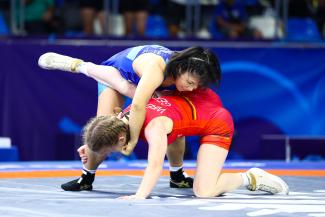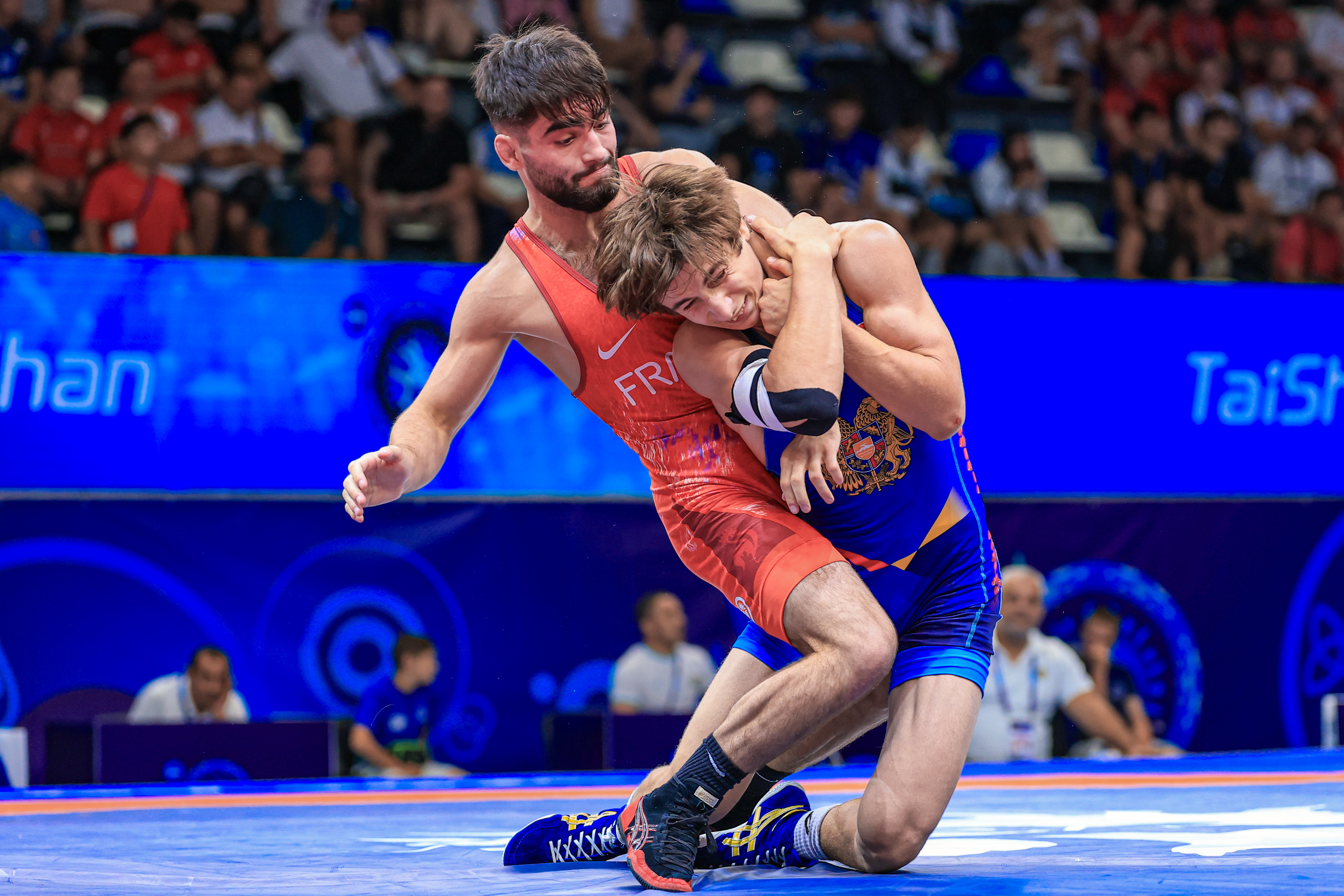Conder Wins Second Pan Am Games in First Day of Women’s Freestyle
Friday, August 9, 2019 - 03:48 By Taylor Miller

LIMA, Peru - Whitney CONDER (USA) picked up her second Pan American Games title, defeating Lianna MONTERO HERRERA (CUB) in the 50 kg final of the 2019 Pan American Games in Lima, Peru.
The American tallied the 10-2 win, using her counter offense to propel her to victory over Montero, a 2019 Pan Am Championships gold medalist.
The 2015 Pan Am Games champ, Conder is also a three-time Pan American Championships finalist, claiming gold in 2018.
Also winning gold for USA was Sarah HILDEBRANDT (USA), a 2018 World silver medalist, who secured her first Pan Am Games title with a tech fall win in the 53 kg finals against Betzabeth ARGUELLO VILLEGAS (VEN), who was a 2015 Pan Am Games bronze medalist.
Hildebrandt’s leg lace proved to be deadly as she turned Arguello four times after an early takedown for the 10-0 shutout. Hildebrandt also won the Pan American Championship earlier this year in Buenos Aires, Argentina.
At 57 kg, 2019 Pan Am champion and 2015 Pan Am Games bronze medalist Lissette ANTES CASTILLO (ECU) kept the USA from sweeping the gold medals as she held off 2008 Cadet Pan Am champion Jenna BURKERT (USA) for a 2-1 victory.
Trailing 1-0 at the break, Antes scored two step outs in the second period for the Pan Am Games title.
Countries taking home bronze medals included Peru, Colombia, Cuba, Canada, Puerto Rico and Brazil.
Women’s freestyle action wraps up on Friday with 62 kg, 68 kg and 76 kg.
2019 PAN AMERICAN GAMES
at Lima, Peru
Women’s freestyle finals
50 kg
GOLD - Whitney CONDER (USA) df. Yusneylis GUZMÁN LÓPEZ (CUB), 10-2
BRONZE - Thalia MALLQUI PECHE (PER) df. Jacqueline MOLLOCANA ELENO (ECU), 3-1
BRONZE - Carolina CASTILLO HIDALGO (COL) df. Kamila BARBOSA VITO DA SILVA (BRA), 5-1
53 kg
GOLD - Sarah HILDEBRANDT (USA) df. Betzabeth ARGUELLO VILLEGAS (VEN), 10-0
BRONZE - Lianna MONTERO HERRERA (CUB) df. Justina BENITES VASQUEZ (PER), 11-0
BRONZE - Jade PARSONS (CAN) df. Luisa VALVERDE MELENDRES (ECU), 6-3
57 kg
GOLD - Lissette ANTES CASTILLO (ECU) df. Jenna BURKERT (USA), 2-1
BRONZE - Nes RODRIGUEZ TIRADO (PUR) df. Alejandra ROMERO BONILLA (MEX), 4-3
BRONZE - Giullia RODRIGUES PENALBER DE OLIVEIRA (BRA) df. Paula RAMIREZ (NCA), fall 1:27


 Yurik MKHITARYAN (ARM) reached the 60kg final. (Photo: United World Wrestling / Amirreza Aliasgari)
Yurik MKHITARYAN (ARM) reached the 60kg final. (Photo: United World Wrestling / Amirreza Aliasgari)
Share your thoughts.
Comments